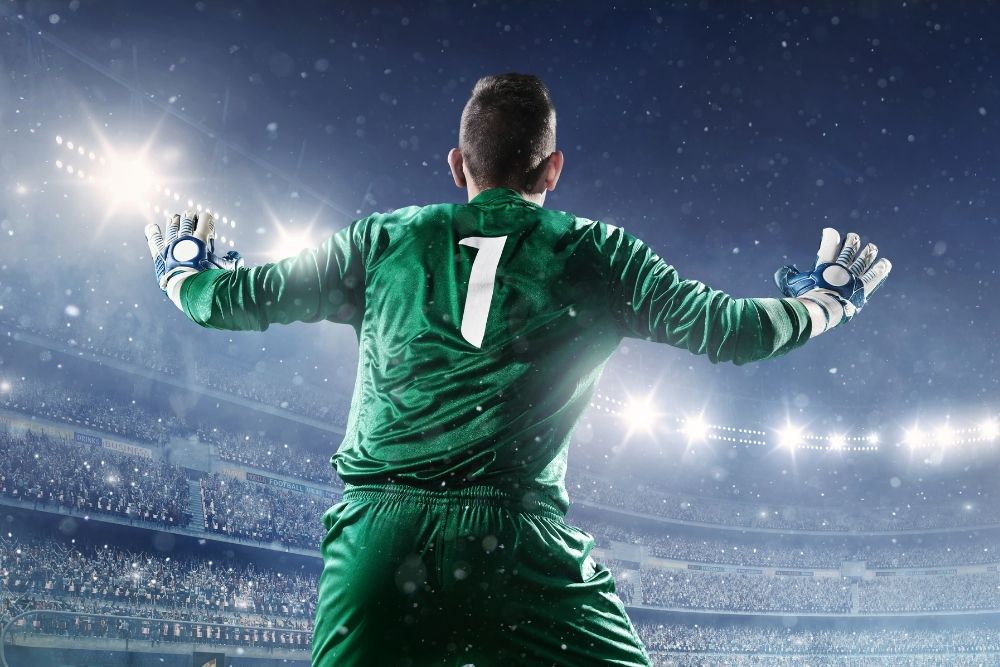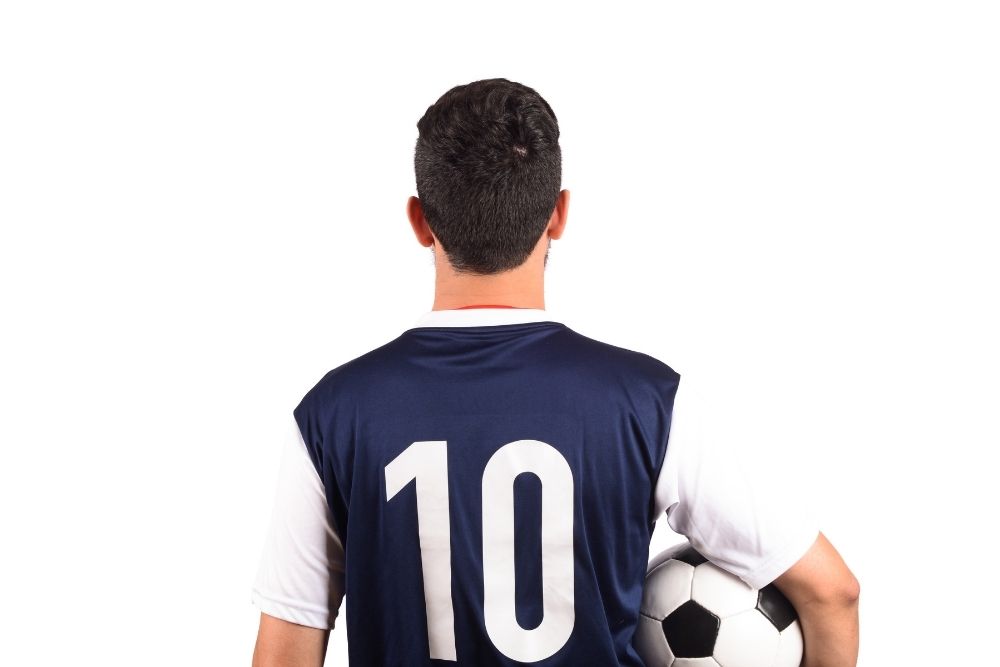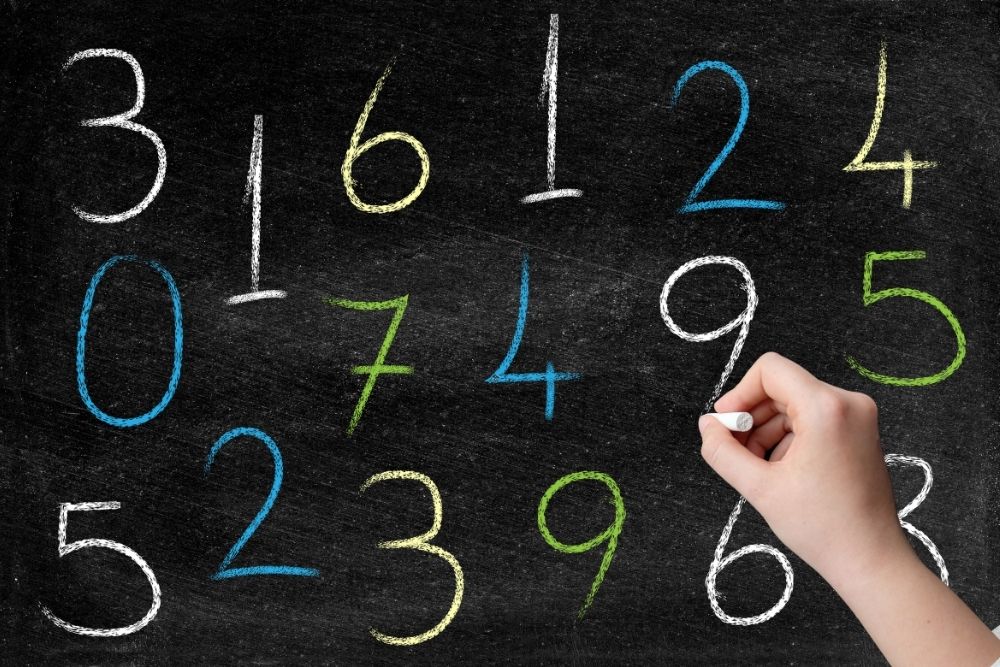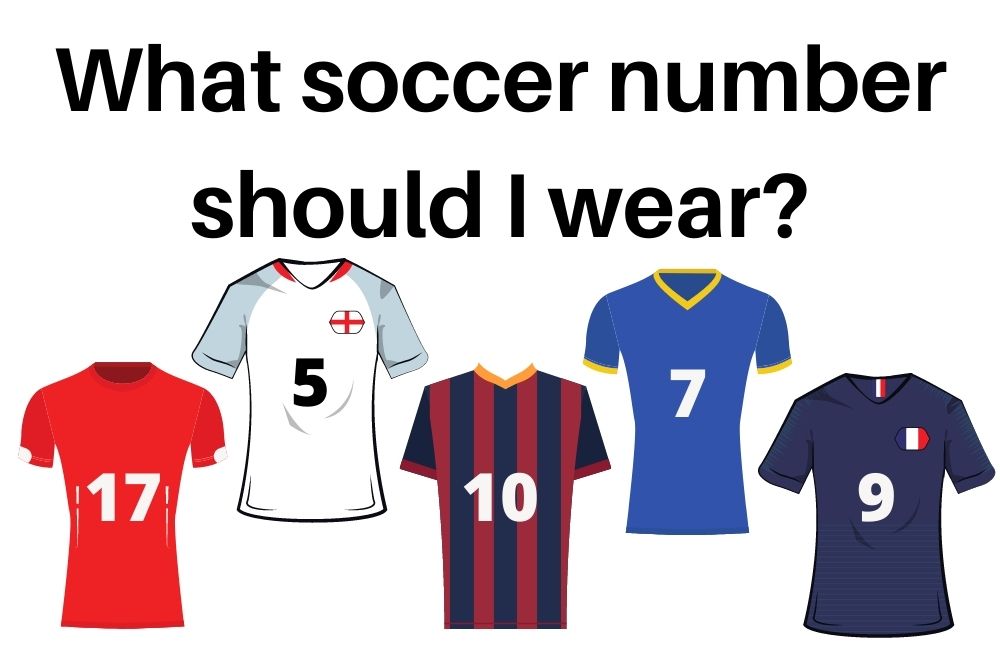Every sport is peculiar, though there are some similarities in most cases. The uniformity of the wears in many sporting activities is one dynamic similarity that can be spotted.
In soccer, the team’s uniform has the peculiarity of having numbers at the back of the shirt and sometimes on the shorts. Both the uniform and the number have reasons for their existence.
Because soccer is a team sport, it needs a high level of camaraderie as well as a strong sense of team spirit to perform effectively and win. Team jerseys promote team togetherness and keep players motivated to improve their performance on the field.
This, in turn, boosts motivation and the motivation to achieve. In addition, when every player on the squad wears the same shirt, color, and hat, it creates a sense of unity and boosts their confidence. It also makes you feel like you’re part of the same country, city, or organization.
Team uniforms are also worn to help you recognize your teammates and set yourself apart from the other teams.
The numbers on the back of a soccer player are mostly used for identification purposes. Every player puts on a distinct number on a team from the others.
The numbers are the major means through which referees identify the players on the soccer pitch because they are all meant to wear the same color shirt.
This article is dedicated to helping soccer players or fans who want to get their team’s jersey and are confused about the number to pick.
Quick Navigation
- What soccer number should I wear?
- You can pick a number because of the position you play on the field
- You can pick a number because of your style of play
- You can choose numbers that are significant to you
- Allow someone else to decide to choose the number for you
- You can choose the number at random
- You can also accept the number given to you
- Conclusion
What soccer number should I wear?
Even though the question looks like an easy one to answer, it might not always be. As a soccer player or fan who has a lot of defining moments in life, with a lot of experience, the decision of choosing a number for your jersey might come to be confusing.
When it comes to selecting your uniform number, bear in mind the league from where you will be purchasing the jersey, as well as the position you will be playing. See if there are any rules governing jersey numbers. In Serie A, for example, players can choose up to 99.

One thing you have to put in mind is that when you join a new team, you may not have the option of selecting the number that you want.
For example, if you are a central defender, you will have been expected to select a natural number like 5 or 6. But, by the time you reach your team, another player might already take the number. So, in this case, you must choose a different number. So, to play as a central defender now, you do not need to wear a number 5 or 6 jersey.
It is impolite to make a demand for your teammate’s jersey number when they are already wearing it, regardless of how talented you are. Any other number will suffice.
This section of the article will help you by giving you the best possible number to choose and why they are suitable for your purpose.
You can pick a number because of the position you play on the field
One of the most prevalent methods for selecting a soccer jersey number is based on a player’s location on the field. In soccer, there are a variety of positions to play. You can play the four positions on the pitch: goalkeeper, defender, midfielder, and attacker.
Center defenders, fullbacks (right and left-back), central midfielders, defending midfielders, attacking midfielders, wingers, and strikers are all subcategories of the positions you can play as a soccer player.
Traditionally, certain numbers have been associated with certain positions or functions. For example, there are positions traditionally allocated to them under the following numbers (1-11).
Number for Goalkeepers

A goalie is generally assigned the number 1. This is why the majority of goalkeepers wear this number. If you are a goalie, this is a good number for you to have. Goalkeepers are given the jersey number 1 because they come first on the team’s list of essentials, and they are very indispensable.
Teams believe it is appropriate to allocate the number to them since they are the first on the list. Goalkeepers are also allowed to wear the number 1 jersey since they are regarded as essential players on the field.
While this may appear to be contentious, it is the truth. A team may usually win a match despite having a lousy or weak striker. However, they will not be able to win a soccer match if their goalie is inept. So, if you’re a goalkeeper, you might want to choose this shirt number.
Also, apart from the number 1, goalkeepers can also wear numbers greater than 20. This is usually common for second choice goalkeepers.
Number for defenders

Normally, the number 2 is assigned to the back right. For example, Jersey number 2 is the one you will most likely wear if you’re a right-handed defender. However, due to the growth of modern soccer, several clubs no longer use fullbacks.
Wingbacks are their preferred formation. A center defender can wear the number 2 shirt in this situation. This number is generally allocated to the right back in the position method of distributing jersey numbers.
Also, the number 3 is also a defender’s number. The allocation of this number is similar to that of the number 2 shirt, but it is given to the left-backs. The majority of left-backs are allocated this number. Even if a club does not have fullbacks, the number might be a good choice for the central defenders.
Next is the number 4. The number 4 is usually assigned to central defenders or defensive midfielders like the Spanish defender Sergio Ramos and the French midfield legend Claude Makelele.
The number 5, just like the number 4, can be allocated to the strongest defender or midfielder in a soccer team, so if you happen to have the strength and you play in the positions mentioned earlier, you can get the number 5 jersey.
The number 6 is usually given to a center defense, but it has also been allocated to central midfielders. An excellent example is Paul Pogba.
Number for midfielders
In some cases, midfielders can be assigned the number 4 shirt as we’ve motioned in the case of Claude Makelele. However, coaches only give out that number to midfielders if they can play a holding role and shield the defense.
Also, midfielders can wear the number 6 shirt too. Though naturally a defensive number, midfield players who have demonstrated a great level of technicalities have been chosen to wear the number as we’ve seen in the cases of Xavi Hernandez, and the famous Dutch player, Ronald De Boer.
Number 7 is another common midfield number. Most soccer players would like to wear this number on their jerseys. However, if your team assigns jersey numbers based on the position of play, the number 7 jersey is often reserved for right-wingers or forwards.
Cristiano Ronaldo wears the number because of this. He is a world-class winger who has had a tremendous amount of success in soccer. With the number 7 jersey, he has created a brand.
The number 8 isn’t as well-known or dazzling as the seven, nine, or ten, but it carries its weight. Goalscoring midfielders who can strike the back of the net regularly while also creating assists and chances for their teammates are likely to wear the shirt.
Central midfielders wear this number on their jerseys. This number is also given to box-to-box midfielders. Aaron Ramsey, the Welsh player, is an excellent example of a player that has played wearing this jersey number.
Frank Lampard, a former Chelsea English star, is another prominent person who has made a name for himself by wearing this number on the back of their shirt.
Offensive creative midfielders, or attacking creative players in general, are nearly always given the number 10. Diego Maradona, Dennis Bergkamp, and Mesut Ozil are three of the more well-known instances.
Despite not being a midfielder, Leo Messi is an excellent example (which is ironic given that in terms of statistics, he’s the most creative player in all competitions over the previous 20 years).
The number 11 shirt is usually reserved for a team’s left-winger, with Manchester United legend Ryan Giggs among the most renowned wearers.
On the other hand, Didier Drogba donned the jersey as a striker for Chelsea, while Neymar wore it for Santos and Barcelona.
If you are a left-winger or forward, you can get the jersey shirt with the number 11 on it (possibly if you play on the left flank).
Number for strikers
A team’s central striker is usually assigned to the number 9. If you know any striker in soccer, they would almost certainly tell you that having this number is a source of pride for them.
When the number 9 is mentioned, the famed Brazilian soccer star Ronaldo comes to mind. However, Robert Lewandowski and Romelu Lukaku are two other well-known attackers who have made a name for themselves in the number 9 shirt.
If you are a striker, then number 9 might be the right number for you to have at the back of your jersey. Apart from the history, the number has with people who have worn it in the past, it represents someone who has the strongest goal drive in the team.
In some cases, a team’s second striker can wear the number 19, which is considered a second to the main number, 9.
You can pick a number because of your style of play
Your style of play is another important factor to consider before choosing your jersey number. The jersey that is mostly influenced by the style of play of a soccer player includes the numbers 10, 7, 9, 5, among others.
If a player is known for a defensive style of play, it is not wrong to give such a player a number 5 jersey number. For example, either a midfielder or a defender, if a player is good in the defense, they are fit to choose the number 5 shirt.
If the player can sprint well, the number associated with that style of play is the number 7. Whether a forward or a winger, if a player has a good pace, number 7 is the right choice, especially if he plays on the right.
On the other hand, a clinical finisher can be handed the number 9 because of how they play.
If you are sure about your creative prowess on the pitch, then the number 10 might be your choice, as the number has a high link with creative players.

The number 10 shirt is traditionally worn by the team’s playmaker or star attacking midfielder. It is a number that should not be taken lightly, and it’s one of the shirt numbers that must be earned.
A playmaker is a player that sets the tone of the attacking play with their keen vision, understanding of the game, passing abilities, technique, and ability to read the game.
Most playmakers who earn this number are known to have excellent passing skills and can choreograph the flow of play.
You can choose numbers that are significant to you
Players do not need to select jersey numbers based on their position on the field. You have probably observed players who choose jersey numbers that aren’t among the usual numbers allotted to different positions on the field.
Aside from choosing a jersey number depending on your position on the field, you can also choose numbers that are meaningful to you. For example, if you can pick your jersey number, you can use the following numbers.
Your birthday
If you’re trying to decide on a jersey number and aren’t sure where to start, think about your birthday. For example, if you were born on November 29th, you can choose jersey number 29.

Gianluigi Donnarumma is a fantastic example of a player whose jersey number is based on his birthday. When he was at AC Milan, he wore the 99 jersey. In the year 1999, he was born. He is a member of Paris Saint-Germain, a French club.
Even though he is a goalie, he elected not to wear the standard number one shirt worn by most goalkeepers. This number may appear to be somewhat different from others, yet it is the one he chose and proudly wore. You may use your birthday as the basis for a jersey number.
A date of a special occasion
You could also have a special date in your life that means a lot to you. Because a jersey number is so important to you as a player, you might choose it to commemorate a special occasion in your life.

For example, as your jersey number, you can pick the day you joined your club or the day you began playing professional soccer.
For example, if you began playing on May 25th, you can choose that number as a constant reminder of the day you began your professional soccer career.
Use the jersey number of a parent, grandparent, or close relative: When choosing a number, you should choose a number that has meaning.
If none of the following possibilities for your jersey number are available because other players have already selected them, you can still attempt another way.
To get a more personalized number, use the phone number of someone you care about. For example, if your parents or grandparents used to play sports, wearing their old number is a kind gesture that they will enjoy at every game.
You can use a lucky number
When you want to pick something that makes you happy when it comes to your uniform number. At the start of a new soccer season, some fortunate numbers, such as 7 or 9, tend to be the most popular.

While certain numbers are seen as lucky, others are thought to be unlucky by the superstitious. Therefore, if you have some belief, you will AVOID the numbers 6 and 13 because many believe they are unlucky.
Of course, a lucky number might be a fortunate personal number you have given meaning to over time. But, after all, it’s up to you to decide if a number is fortunate for you!
You can choose the number of your favorite player: Most professional athletes have a favorite that they idolize both on and off the field.
Choosing the same number as a favorite major league player is a terrific way to show respect to them. This is also a subtle way of bragging about how good your talents are compared to those of your favorite player.
Allow someone else to decide to choose the number for you
Some people don’t want the extra stress of choosing their jersey number since there are too many options or too much work. Allow someone else to decide if you are unable to do so due to indecision.
Allowing a friend or family member to choose your number relieves some of the strain, allowing you to concentrate on the forthcoming season rather than the jersey number you’ll wear all season.
Playing is stressful enough as it is, so asking for assistance in selecting your number is too much for you.
You can choose the number at random

Suppose you’re not superstitious or interested in having a number with personal meaning or significance to you, but you want to choose your jersey number. In that case, you may do the choosing at random.
Simply write down all of the available numbers on pieces of paper, place them in a hat or bag, and choose one. This is especially beneficial if your first choice of number is already taken or if you’re attempting to choose amongst your favorite numbers in general.
You can also accept the number given to you
While having the option of picking your jersey number is a wonderful perk, keep in mind that it is sometimes a luxury rather than a right.
Coaches frequently determine player numbers, and you may have little or no influence on the issue. There will be instances when the number you’re given isn’t your choice, and you’ll just have to roll with it.

When presented with a number you don’t like, as a good sportsman, you can get it too. Because though your jersey number is important to you, your performance is the more important thing to focus on.
A fantastic example is Michael Essien of Chelsea. Even though he was not a central defender, he wore the number 5 shirt, and it worked out well for him and the team. A player’s performance is unaffected by having a number that doesn’t appeal to them.
Conclusion
Soccer jersey number is one of the most notable features of the type, and it is also common in other sports such as basketball, rugby, American football, and many others.
The major duty or role that numbers serve at the back of any player’s jersey is to help with identification. In most cases, the referee might not be able to easily identify players on the pitch because of the speed at which things happen, but this can be changed with the use of jersey numbers.
There are many things you can consider while deciding on your jersey number. First, you can consider the position you play and choose some numbers with traditional positional significance.
You can also choose a number from the days that are significant in your life; numbers like birthdays, your lucky number, your idol’s jersey number, and so on.
As a good sportsman, you can even decide to choose any number given to you. You might even choose randomly or ask a friend to choose for you.
All in all, there are jersey numbers that have a huge reputation attached to them due to successful players who built a cherishable career wearing them.
You should want to get a high number, but if you can’t, your performance is more important, and that should be your main goal in building.
Hi there, I’m Jay.
Soccer is everything in my life! My friends and I have created this blog with all our enthusiasm, passion, and understanding after years of playing pro soccer. Hope you will enjoy it!
